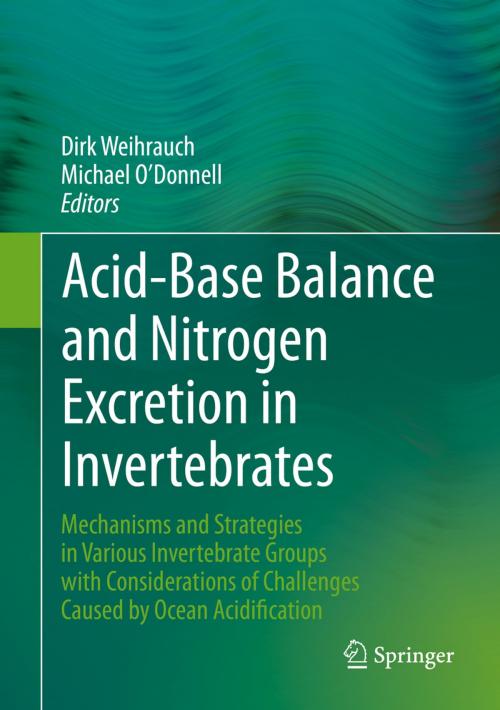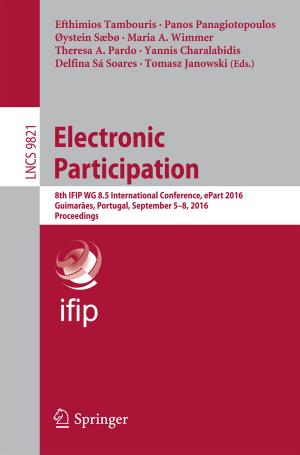Acid-Base Balance and Nitrogen Excretion in Invertebrates
Mechanisms and Strategies in Various Invertebrate Groups with Considerations of Challenges Caused by Ocean Acidification
Nonfiction, Science & Nature, Science, Biological Sciences, Ecology, Zoology| Author: | ISBN: | 9783319396170 | |
| Publisher: | Springer International Publishing | Publication: | December 15, 2016 |
| Imprint: | Springer | Language: | English |
| Author: | |
| ISBN: | 9783319396170 |
| Publisher: | Springer International Publishing |
| Publication: | December 15, 2016 |
| Imprint: | Springer |
| Language: | English |
This textbook provides a comprehensive overview on the diverse strategies invertebrate animals have developed for nitrogen excretion and maintenance of acid-base balance and summarizes the most recent findings in the field, obtained by state-of-the-art methodology. A broad range of terrestrial, freshwater and marine invertebrate groups are covered, including crustaceans, cephalopods, insects and worms. In addition the impact of current and future changes in ocean acidification on marine invertebrates due to anthropogenic CO2 release will be analyzed. The book addresses graduate students and young researchers interested in general animal physiology, comparative physiology and marine/aquatic animal physiology. Also it is an essential source for researchers dealing with the effects of increasing pCO2 levels on aquatic animals, of which the vast majority are indeed invertebrates. All chapters are peer-reviewed.
This textbook provides a comprehensive overview on the diverse strategies invertebrate animals have developed for nitrogen excretion and maintenance of acid-base balance and summarizes the most recent findings in the field, obtained by state-of-the-art methodology. A broad range of terrestrial, freshwater and marine invertebrate groups are covered, including crustaceans, cephalopods, insects and worms. In addition the impact of current and future changes in ocean acidification on marine invertebrates due to anthropogenic CO2 release will be analyzed. The book addresses graduate students and young researchers interested in general animal physiology, comparative physiology and marine/aquatic animal physiology. Also it is an essential source for researchers dealing with the effects of increasing pCO2 levels on aquatic animals, of which the vast majority are indeed invertebrates. All chapters are peer-reviewed.















